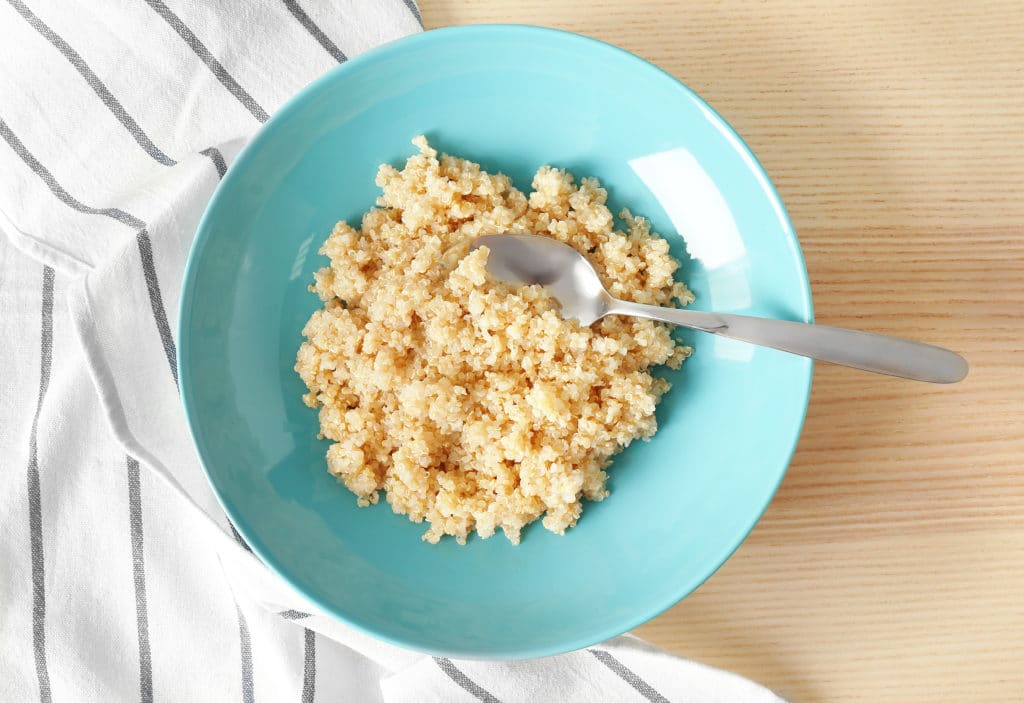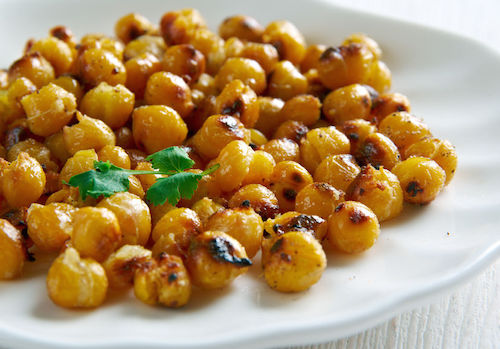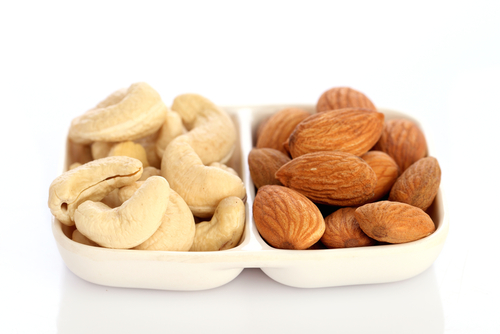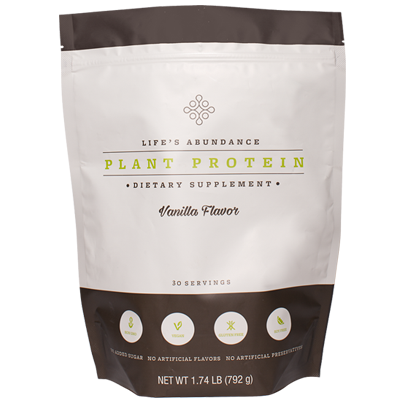 Eat Empowered
Eat Empowered  Healthy Eating Tips
Healthy Eating Tips
The Essential Guide to Plant-Based Protein
Home » Eat Empowered » Healthy Eating Tips » The Essential Guide to Plant-Based Protein
Maybe you got a smart pet and decided you had to go vegan. Maybe you’re cutting back on eating beef to lighten your environmental footprint. Whatever the reason, when you reduce meat in your diet, getting enough plant-based protein becomes important.
Why? Every meal should include protein since it contributes to satiety (AKA prevents overeating), provides energy, and helps maintain and build muscle (especially if you’re a gym junkie).
The good news: Our food supply is now filled with plant-based protein sources. Hemp and chia seeds weren’t sitting on grocery store shelves five years ago; neither were high-quality vegan protein powders. We can now meet our needs without burgers or wings.
How to do that in the healthiest way possible? Here’s everything you need to know about plant-based protein.
The Myth of the Complete Protein
First of all, it’s important to know that it’s a (very widespread) myth that you need to eat beans and rice together on one plate to form complete proteins (which contain all essential amino acids), like those found in meat.
RELATED: Should You Add Liquid Aminos to Your Diet?
Frances Moore Lappe proposed the theory of “protein complementing” in her book, “Diet For a Small Planet,” published in the 1970s. In later editions, she corrected the mistake to reflect the prevailing scientific position: As long as you are eating enough calories of varied plant-based food, you’ll get all the essential amino acids and meet your daily protein requirements. In other words, yes, rice and beans are complementary, but you don’t have to mix them together during the same meal in order to benefit from the protein each offers on its own.
Plus, most Americans are eating more protein than they need, so it is rare to be deficient (although it’s much easier without meat).
Whole Food Plant-Based Protein Sources
If you’re eating lots of different vegetables, fruits and whole grains, you may already be getting more protein than you realize. Most veggies—from broccoli to spinach to potatoes—contain at least a few grams. But the following whole foods contain some of the highest amounts of plant-based protein.
Ancient Grains
Ancient grains such as quinoa, farro, and amaranth provide 8-9 grams of protein per cup (cooked) and are filled with fiber, vitamins, minerals and antioxidants.
RELATED: A Modern Guide to Ancient Grains

Legumes
Legumes such as lentils, black beans and chickpeas provide many of the same important nutrients, including antioxidants, and deliver even more protein, with about 15-18 grams per serving.
RELATED: A Nutritionist’s Guide to Lentils

Nuts
Nuts such as almonds, walnuts and cashews are protein stars that also contain healthy fats. That includes the nut butters you love, such as almond and peanut. Just watch your serving sizes as calories can add up fast. Chia and hemp seeds are packed with protein (and many other beneficial nutrients) and can literally be sprinkled on anything—from avocado toast to zucchini noodles.
RELATED: Raw vs. Roasted vs. Sprouted: Which Nuts Are Healthiest?

Plant-Based Meat Substitutes
In general, it’s best to stay away from faux meat, but not all options are awful.
When it comes to soy, avoid faux meats made with highly processed versions, such as soy concentrates and textured soy. And choose USDA-certified organic if you can, since soy is one of the most pesticide-soaked crops on the planet. All that being said, a block of organic tofu added to a stir fry instead of chicken is a great source of protein. Even better, try tempeh, which is a fermented version with probiotic benefits.
Seitan, on the other hand, is best avoided, since it’s basically concentrated wheat protein and is usually highly processed.
Finally, when it comes to veggie burgers, read labels carefully, since many are filled with processed soy and other potentially harmful additives. Look for products that list whole vegetables, beans and other recognizable foods as ingredients. Better yet, make your own.
RELATED: Are Impossible Burgers Healthy? And What About Beyond Burgers?
Plant-Based Protein Powders

Finally, if you feel like you’re not getting enough protein, you can always boost your smoothie with a plant-based protein powder. This is a particularly helpful option if you love intense workouts and want to retain and build muscle shortly after a training session.
Skip soy protein since it tends to be super processed. Instead, reach for pea protein or hemp protein, which are both healthy, plant-based protein powder sources.
Here’s the key: Most companies make powders that blend a mix of plant-based protein sources, combining pea or hemp, for example, with sunflower, flax, chia or sacha inchi protein. These blends can be super healthy, but you have to pay close attention to the ingredients to make sure they’re not blending in preservatives, fillers and artificial flavors. (P.S. I’m partial to Life’s Abundance Plant Protein Powder, since I just happened to help develop the recipe.)
The bottom line: If you incorporate all (or even some) of these foods into your plant-based diet on a regular basis, chances are you’ll be getting plenty of protein.
(Images: Shutterstock)
The Nutritious Life Editors are a team of healthy lifestyle enthusiasts who not only subscribe to — and live! — the 8 Pillars of a Nutritious Life, but also have access to some of the savviest thought leaders in the health and wellness space — including our founder and resident dietitian, Keri Glassman. From the hottest trends in wellness to the latest medical science, we stay on top of it all in order to deliver the info YOU need to live your most nutritious life.
RECENT ARTICLES

Want a sneak peek inside the program?
Get FREE access to some of the core training materials that make up our signature program – Become a Nutrition Coach.
Get Access"*" indicates required fields













































































































































































































































































































































































































































































































































































































































































































































































































































































































































































































































































































































































































































































































































































































































